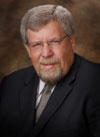 Wisconsin Lawyer
Wisconsin Lawyer
Vol. 84, No. 11, November 2011
Question
I always understood that I could not advise my client to have direct contact with the opposing party in a representation. Is that correct?
Answer
Maybe yes or maybe no.
I too have always thought that I could not advise a client of mine to have direct contact with an opposing party who is represented by an attorney. I have been faced with situations in the past in which a client has suggested that she would like to contact the other party directly, and I have only indicated that she has a right to do so and that I cannot contribute to that communication in any way. I have also questioned whether even this limited statement to my client is permissible.
A recent opinion from the American Bar Association Standing Committee on Ethics and Professional Responsibility (the committee) is beginning to change views about this prohibition. In Formal Opinion 11-461, “Advising Clients Regarding Direct Contacts with Represented Persons,” the committee has opened the door to more involvement by attorneys in assisting clients with direct communication with opposing parties. The committee has opined that a client may request a lawyer’s assistance, and a lawyer “may be reasonably expected to advise or assist the client regarding communications the client desires to have with a represented person.” In the opinion, the committee says that it is permissible for a client to engage in communication with an opposing party, and it also is acceptable for the lawyer to suggest that type of communication.
Prior ethics opinions have indicated that a lawyer may suggest, under limited circumstances, that a client communicate with an opposing party (for example, to determine whether a settlement offer was communicated to the opposing party). Opinion 11-461 expands the circumstances under which a lawyer may suggest to a client that the client have direct communication with an opposing party. The lawyer might be obligated to make that suggestion as part of the lawyer’s duty of competence and duty to provide appropriate representation to his or her client.
The lawyer must always be careful not to step over the line and violate SCR 20:4.2, which prohibits a lawyer from communicating with a person whom the lawyer knows to be represented by counsel. The lawyer must also be sensitive to SCR 20:8.4(a), which provides that a lawyer may not “knowingly assist or induce another” to violate or attempt to violate the Rules of Professional Conduct.
Opinion 11-461 also suggests that the lawyer may assist the client in developing the agenda or talking points for the communication and even may be called on to draft a document that would be communicated by the client to the opposing party. In these instances, the lawyer must be very careful that he or she is not using the client to engage in a violation of the Rules of Professional Conduct by communicating directly with the opposing party who is represented by counsel. The opinion says that the lawyer may be going too far if the lawyer develops information or talking points that the client uses to obtain enforceable obligations from or disclosure of confidential information or admissions against interest by the opposing party.
 Dean R. Dietrich, Marquette 1977, of Ruder Ware, Wausau, is past chair of the State Bar Professional Ethics Committee.
Dean R. Dietrich, Marquette 1977, of Ruder Ware, Wausau, is past chair of the State Bar Professional Ethics Committee.
Opinion 11-461 relies on two of a lawyer’s duties – the duty of competence and the duty to consult with the client as to the means by which the client’s objectives are to be accomplished – as a basis to opine that the attorney may consult with the client and assist the client in developing information and talking points for a direct communication with the opposing party by the client. This opinion has received a great deal of criticism from lawyers who focus on professional responsibility matters; they argue that it goes too far and some have even called for the opinion to be withdrawn. The State Bar Committee on Professional Ethics has not addressed the issue.
Lawyers should be cautious about encouraging or assisting clients in having direct communications with an opposing party who is represented by counsel. The ABA opinions are not binding on the Office of Lawyer Regulation and are subject to differing levels of acceptance.
Wisconsin Lawyer
